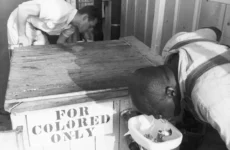Total of grants to medical center in 2016 reaches $6 million mark
The New York State Department of Health has awarded a $450,000 grant to Niagara Falls Memorial Medical Center to support the continuation of a successful program that ensures better post-hospital care while reducing hospital readmissions and nursing home stays.
Called Bridging the Inpatient Process (BIP): Building Bridges to Home and Community Care, the inno-vative program has restructured the hospital’s discharge process to provide needed support to care-givers who will care for Medicaid beneficiaries at home and in the community and to ensure better transitions to outpatient care and services.
Those changes have generated more than $2.39 million in Medicaid savings during the past year. In its first year of operation, the BIP program prevented 105 acute and behavioral health admissions and avoided 9,476 days of Medicaid-paid nursing home care.
“We are grateful to the Department of Health for their continued support, which is a testament to the documented success of this groundbreaking effort,” said Memorial Vice President and Chief Operating Officer Sheila K. Kee.
“This latest award validates the millions of dollars we are saving federal, state and local government funders by preventing frequent and medically unnecessary hospitalizations and emergency room us-age,” said President & CEO Joseph A. Ruffolo. “Providing patient care at home with the aid of caregiv-ers who have received training, education and support on helping their loved ones recover from an illness is a proven strategy for improving outcomes and saving healthcare dollars.”
The “bridges” to home and community care are built by specially trained professionals – including dis-charge planners, social workers and resource coordinators from Niagara Falls Memorial and several community-based organizations.
“This team of specialists has broken down the barriers between hospital and home by providing the education and support needed to effectively connect patients to medical, mental health and medica-tion management assistance in the community,” said Kee. “This additional support extends to family members caring for Medicaid beneficiaries at home.”
The incorporation of support mechanisms such as a telephone hotline, resource guide and safe hous-ing registry also have helped ensure better health, especially for chronic, high risk patients, she added.
“Many of these people were previously in danger of falling through the cracks after being discharged from the hospital,” Kee said. “Now they’re being supported in some very meaningful ways.”
Ruffolo noted the documented results of innovative Memorial Medical Center efforts such as Bridging the Inpatient Process: Building Bridges to Home and Community Care, Emergency Department Care Coordination and Short Stay Intensive Case Management have paved the way for some $6 million in government and private foundation grants thus far this year.
Included in that total is a three-year, $339,154 grant from The Peter and Elizabeth C. Tower Founda-tion to support “Close the Gaps,” a project to provide service coordination and care management to youth with intellectual disabilities (ID), from newborns to young adults in Niagara Falls. It will also serve the families of those with intellectual disabilities.
“Our efforts are truly making a difference in the quality of life enjoyed by so many, especially vulnera-ble individuals who are at high risk,” Ruffolo said. “It’s gratifying to be recognized for providing quality care and promoting better health – and doing so in a cost effective manner.”




















